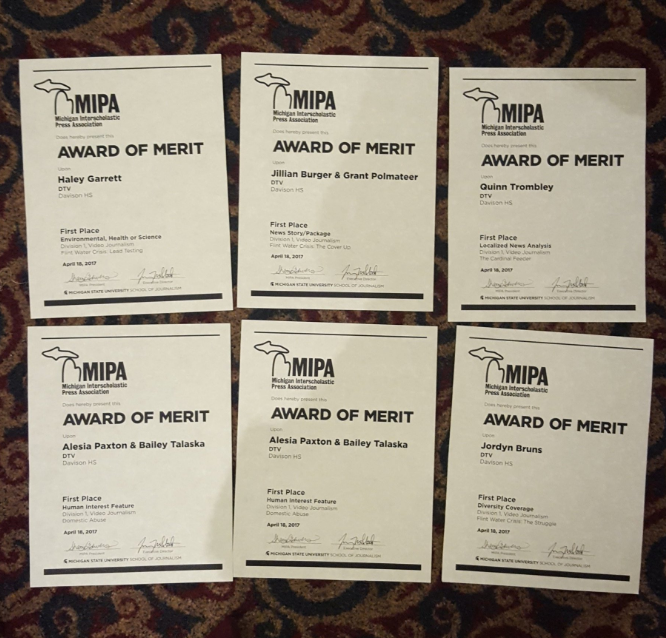DTV has been picked to have our Flint documentary Undrinkable in the Traverse City Film Festival on the 28th of July. There will be Film makers from all over the world and DTV will be among them, and will even be participating in the panel after to discuss our work . At the festival there will be three other film focusing on Flint and the water crisis, one of the biggest news topics of last year, Undrinkable being the only Documentary there created by High School Students. This Festival was founded by Davison own Michael Moore, who has spoken out a lot for Flint and helped get Undrinkable out to the people. Tickets sales start on the 15th at 10 AM at the box office or at 6 pm online, general admission is 12 dollars. DTV is honored with this opportunity to be recognized along with other great film makers and represent student journalist.
Click here for more information on the festival-http://www.traversecityfilmfest.org/blog/
Click here for more information on the viewing of Undrinkable- http://secure.traversecityfilmfest.org/websales/pages/info.aspx?evtinfo=303475~4d61cd53-466a-4a38-9b0c-5dd9c77930d9&epguid=8fc1333c-62a3-467a-b51c-ada73714212e
Watch our documentaries here





